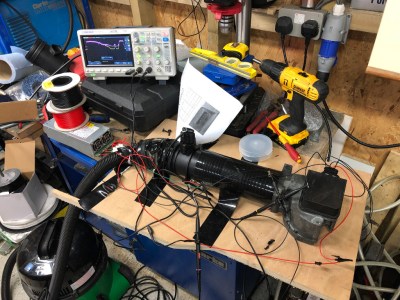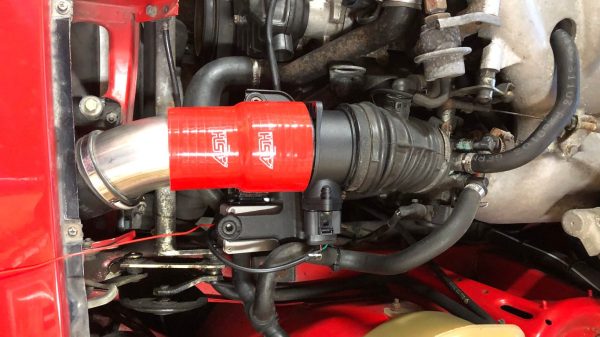Electronic fuel injection was a big leap forward for engine control. However, early implementations often left something to be desired. This was the case for [Rob] and his Porsche 944, which had relied on an old-fashioned mechanical air flow meter (AFM). He decided to replace this with a modern mass air flow (MAF) sensor instead, and documented the process online.

AFMs are often a target for replacement on old cars. They’re usually based on a flap that moves a potentiometer wiper across a carbon trace which wears out over the years. They can also present an air flow restriction in some cases, limiting performance. MAF sensors instead measure the amount of air flowing through with a hot wire. The amount of current required to maintain the temperature of the wire indicates the amount of air flowing through the sensor. They’re less restrictive and readily available as they’re used in many cars today.
To run a MAF in place of the AFM requires a circuit to emulate the AFM’s output. [Rob] used a STM32 Cortex-M0 to read the MAF, and then output the relevant voltage to the Porsche’s engine computer via PWM and a low pass filter. To figure out how to map the MAF’s output to match the AFM, [Rob] built a rig to blow air through both devices in series, and measuring their output on an oscilloscope. This data was used to program the STM32 to output the right emulated AFM voltage for the given MAF signal.
It’s a great piece of work from [Rob] that has his Porsche running happily on new parts. We’ve seen similar hacks done to other cars before, as well! Video after the break.











